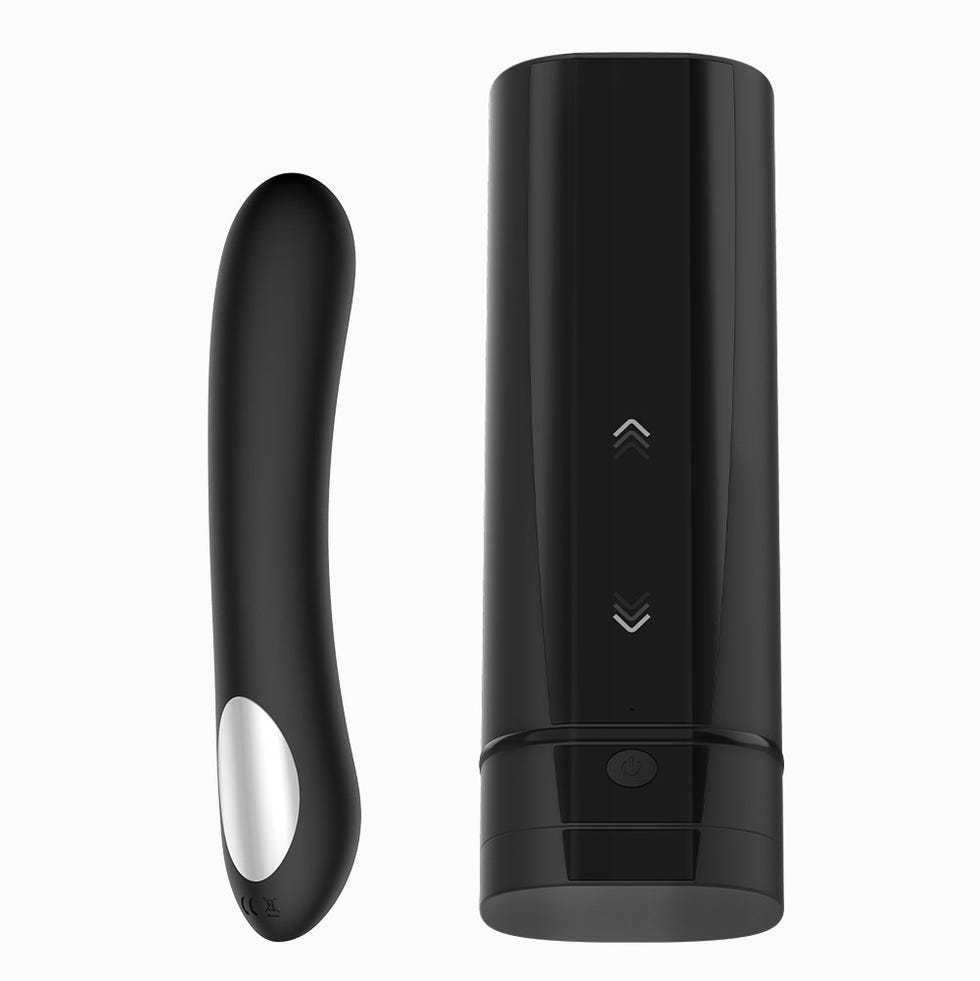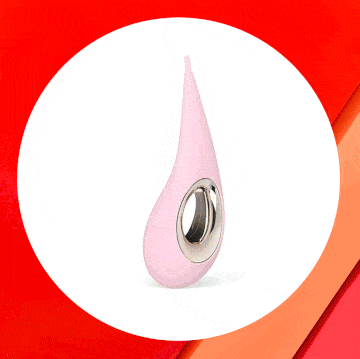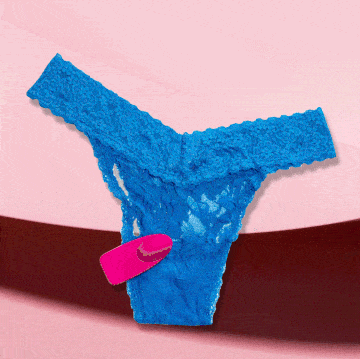Life happens, which means dry spells happen. No big deal—unless that dry spell morphs into more of a, well, severe drought. While not the best feeling, those droughts are still very common. And they happen for many reasons, too.
If you or your partner has less of a desire for sex, something could be going on hormonally, medically, or mentally—or it could be due to more than one factor, too. Whenever you feel your passion waning, the best approach is to get curious (and honest!) about its root cause(s). And know that you're not alone, especially if you've been in your marriage or relationship for awhile.
In fact, “it’s normal for there to be an ebb and flow in sexual desire in a marriage,” says Ramani Durvasula, PhD, a licensed clinical psychologist and author of Should I Stay or Should I Go?.
Factors like stress, time, kids, and unresolved conflicts can seriously zap your sex drive. But that doesn't mean you should just give up on a having a satisfying sex life. Almost all of the sexual appetite-curbing culprits are temporary and fixable, as long as you're willing to see a doctor, communicate with your partner, and—most importantly—prioritize your sex life and pleasure.
“Getting ahead of it is important,” Durvasula says. Plus, working on your sex life either together or individually is all part of growing your ever-changing levels of sexual compatibility.
Curious to know what might be leaving you in the desire desert? Here are some of the most common reasons women lose their sex drives, plus what to do about it, according to sex therapists, psychologists, and physicians.
Meet the Experts:
Ramani Durvasula, PhD, is a licensed clinical psychologist, and author of Should I Stay or Should I Go?.
Dr. Jennifer Wider, MD, is a women's health expert, author, and radio host.
Janet Brito, PhD, is a clinical psychologist and sexologist in Honolulu.
Terri Orbuch, PhD, is a relationship expert, author, and therapist based in Michigan.
Brandy Engler, PhD, is a licensed clinical psychologist specializing in relationships and sexuality based in Los Angeles.
Dr. Laura Purdy, MD, is a board-certified family medicine physician based in Nashville.
1. Your birth control could be responsible.
If you've had any medication changes, especially related to birth control, you might experience a downshift in your sex drive. “Because there are hormones in the birth control pill, the reaction can vary from person to person, depending on your body chemistry and the type of hormone mixture in the pill,” says Dr. Jennifer Wider, MD, a women's health expert, author, and radio host.
If your libido seems to go MIA right after you start a new hormonal birth control method, talk to your doctor. “There are tons of options to choose from and having your sex life impaired due to medication can be easily overcome for most people,” Dr. Wider says.
Additionally, you may experience a dip in your libido because you just got off birth control. “If someone experiences low sex drive after stopping birth control, it can be due to a temporary hormonal imbalance,” says Dr. Laura Purdy, MD, a board-certified family medicine physician. “It can take several months for the body to adjust to the absence of birth control hormones, and during this time, you may experience changes in your sex drive.”
2. You recently gave birth.
Perhaps this may come as no surprise, but new parenthood can be rough on your sex life. “You’re tired, stressed out, and may not feel sexy anymore,” Durvasula says. “Is that a formula? No. But for many women, it’s real.” Add the post-pregnancy hormone changes into the mix, and you're potentially left with low libido.
Many doctors recommend waiting up to six weeks after giving birth to start having sex again—and it's totally normal if it takes a little longer to get back in the saddle. Along with hormonal changes and vaginal pain, you might feel stressed and overwhelmed. After all, taking care of a newborn means constantly prioritizing another (tiny) person's needs and demands over your own. And at some point, sex can feel like just another demand.
Talk to your partner about the pressures you’re dealing with, and be open about how it’s affecting your sex life. Then, see if they can help you take on some of these new responsibilities on a consistent basis, Durvasula says.
If you're dealing with postpartum stress or mood shifts, engaging in physical activity like exercise can also improve your mood and boost your energy levels, which can positively impact sex drive, says Dr. Purdy. (If you had a C-section or experienced any complications, however, make sure to check in with your OB-GYN about when it's safe to work out.) At the end of the day, the change in libido after pregnancy is normal and temporary, so try not to put so much pressure on yourself.
3. You're struggling with body image.
Having a negative body image can lead to a lack of self-esteem and general discomfort with your body. Those insecurities can lead to a lesser interest in sex and a lack of sexual expression.
"If you feel good about yourself and appreciate your body, you're more likely to be open to sexual activities," says Janet Brito, PhD, a clinical psychologist and sexologist in Honolulu. One step people can take to feel good in their skin, she adds, is radical self-acceptance. This doesn't necessarily mean loving everything about yourself, but appreciating your body, mind, and flaws. Next time you find yourself criticizing your appearance, try to practice self-compassion by accepting those thoughts instead of getting even more down on yourself, or wishing you were perfect.
You can also do a media sweep and start following accounts that put forth messaging around body positivity and acceptance, while unfollowing the ones that no longer serve you.
4. You're dealing with a lot of stress.
"When the body is under stress, it produces cortisol, which can suppress libido," says Dr. Purdy. "Additionally, stress can lead to feelings of anxiety and depression, which can also impact sex drive."
In long-term relationships, many women end up playing multiple roles and fulfilling multiple obligations, which can feel overwhelming, adds Brito. Think: "Being a partner and a mother, while balancing your career and personal life," she says. Sound familiar? In these cases, it's easy for that last one—personal life—to take a back seat.
Try talking to your partner about everything that's on your plate, and don't be afraid to ask for what you need: Maybe you're having a busy month at work, and it's up to your S.O. to take on more than their usual half of household chores and errands. Or maybe, you're dealing with issues within your friend group, and you just need to vent—or hire a babysitter and have your partner plan a romantic night out. It all depends on what's stressing you out, and what you need to alleviate that pressure.
If you find yourself constantly getting stressed before sex and unable to get out of your head, try to set the mood to relax yourself beforehand, says Durvasula. Maybe take a bubble bath surrounded by candles, or slip into some silky lingerie—whatever helps you channel positive, laidback energy.
5. You're experiencing some boredom.
Unfortunately, relationship boredom is very much a thing. But fortunately, it's completely normal, and doesn't necessarily mean you'll be bored forever. "Feeling that your life is dull is part of being human," says Brito. However, she notes that if the boredom continues to linger heavily on the relationship, you may have to evaluate where things stand with your partner.
Instead of looking at it as the same old, same old, remind yourself that your relationship is something special that only you and your partner share, Durvasula suggests. And it doesn't hurt to spice things up, as much as your lifestyle and finances allow. Try taking a vacation together and having hotel sex, or adding some new positions to your sexual repertoire. “Anything that can make sex feel new is great,” she says. And, if things still aren’t working for you, it may be time to consider couples therapy.
6. There are unresolved conflicts in your relationship.
"Some folks won't be interested in having sex after a fight, while others will use sex to repair the rupture," says Brito. If you're in the former camp, you're probs not so interested in having sex with a person you're feeling less than fond of—makes sense! Truth is, even if conflict makes you want to get it on, you'll still need to get to the root of your issues if you want the relationship to continue long-term.
In times of conflict, communication is key. "Start by practicing reflective listening. Listen to your partner's unmet emotional needs. Tune in emotionally to begin the process of being there for one another, and create a safe space in your relationship to discuss charged topics," suggests Brito.
7. You feel like you don't have time.
When you're stressed beyond belief, you may also feel like you just. don't. have. time.
Totally fair. This is where scheduling sex can really come in handy. “It's not spontaneous, but it’s more likely to happen," relationship expert Terri Orbuch, PhD previously told Women's Health. And while scheduled sex might sound less sexy, it doesn't have to be! After all, planning for intimacy can mean more anticipation, and if you carve out a few hours for dedicated time together, you can make sure phones are on 'Do Not Disturb,' your favorite sexy playlist is on blast, and you're solely focused on each other..
It's also worth taking the time to rediscover what brings you pleasure—and remember, pleasure isn't just about sex. You can get pleasure by eating your favorite food, practicing self-care, listening to your favorite music, dancing, et cetera. "Start small," says Brito. "Make intentional choices to center your pleasure. This action may increase your desire for sex, whether for a solo sesh or with a partner."
8. You could be pregnant.
"A change in hormone levels and body changes that occur during pregnancy may impact libido," says Brito. This can go either way: Some women notice a higher sex drive during pregnancy, while others notice a decrease. Either is okay, and both are temporary!
But if a drop in your desire is interfering with your happiness or relationship, go ahead and "discuss any concerns with your medical provider, partner, and/or therapist," Brito says.
9. You're not getting enough sleep.
When you miss out on sleep the night before work, you'll most likely be reliant on a few cups of coffee to get you through the day. That's no different when it comes to your sex life. "When the body is sleep-deprived, it produces less testosterone, which can lead to a decrease in sex drive," says Purdy. "Additionally, lack of sleep can lead to feelings of irritability and exhaustion, which can make sexual activity less appealing."
The fix? Prioritize your rest to get your energy levels up. That means avoiding caffeine, unplugging before bed, and setting up an environment that helps you drift off (hello, cooling comforters and essential oils).
And since the above steps will probably take a bit of time before you adjust, try "identifying the best time of the day that you have the most energy in order to maximize your chances of getting it on," adds Brito. So, if you tend to feel zapped at night, try having morning sex instead.
10. You're questioning your sexuality.
People change, and that's okay. Honor and respect your feelings without judgment. If you're at the point where you realize your sexual orientation may be shifting (remember, it's fluid!), or you're learning new things about yourself, it's only natural for sex to become less appealing and pleasing altogether.
Maybe you're in a heterosexual-presenting relationship, and you're realizing you might be interested in people who share your gender identity instead. Or maybe, you're still sexually attracted to your S.O., but are stressed to discover that you're starting to fantasize about people of all genders. It's also possible you're asexual, meaning you don't feel sexual attraction towards anyone—but you're still potentially interested in dating and relationships.
If any of these sound like you, just take a breath and try to take it one day at a time. Read up on different labels, and if you're comfortable, seek support from LGBTQ+ friends and online communities. It's helpful to remember that you're not alone, and that so many people have gotten through the stressful and confusing process of questioning and figuring out their sexuality.
"Journal about your feelings, or seek professional support. Once you are clear and have a greater sense of who you are, it is okay to let your partner know more about who you are," suggests Brito. And if you end up realizing a different label fits your sexual orientation, it doesn't necessarily mean the 'ship is doomed! Maybe you'll realize non-monogamy is right for you, decide to go on a break, or turn your relationship into a platonic friendship instead. Every relationship is different, so the options are endless.
11. You're discovering new kinks.
Even if you're still attracted to your partner, you may be craving different things in the bedroom than you used to. Maybe you liked spanking years ago, but you're not so into it now. Maybe you weren't into golden showers, and now it's something you're fantasizing about. Having these aha moments when it comes to kinks could lead to apprehensiveness around having sex.
Truth is, sexual preferences may shift over time, and perhaps there are new kinks you'd like to try. The key is voicing them to your S.O. Say: "Is there anything you'd like to try in bed? I've been thinking about [insert act here]."
"Have a kitchen conversation about your interests," says Brito. That may mean telling your partner that you want to talk about bedroom stuff and scheduling the right time to do it so you have each other's full, undivided attention. Keep it light, non-judgmental, and shame-free.
12. You're experiencing shame.
Lots of people are affected by restrictive views on sexuality, a.k.a. feelings of shame or guilt. It can best be described as a form of self-disgust or even embarrassment. If you grew up believing sex was shameful, that could easily affect sex as an adult and lead to low interest in sex. It can also foster a lack of physical vulnerability and openness in the bedroom.
"Once you are aware that shame is getting in the way, seek ways to understand its origin, seek professional support, and set the intention to begin to practice self-acceptance," says Brito.
13. You have anxiety.
Many people deal with some form of anxiety, which can cause feelings of tension and unease, making sexual activity less appealing, says Dr. Purdy. "It can also lead to physical symptoms such as muscle tension and shallow breathing, which can make it difficult to relax and enjoy sexual activity," she adds.
"Mindfulness and relaxation techniques may help you relax and increase your body awareness—two qualities necessary for improving sexual drive," adds Brito. This might look like breath work, meditation, exercising, or working with a therapist to learn techniques to help you manage your anxiety.
14. You have depression.
If you find yourself suddenly not wanting sex, Durvasula recommends checking in with your doctor to make sure everything is okay on the health front, since depression can also lead to sadness, hopelessness, and low self-esteem.
And if you've already been diagnosed with depression or anxiety and you're on certain medications, definitely check in with your doc. Hormonal changes and certain medications can affect your libido, Durvasula says. In fact, low sex drive is a common side effect of some antidepressants because they can alter your serotonin and dopamine levels.
"[A healthcare provider] may recommend adjusting medication dosages or trying other treatment options," adds Purdy. So, when in doubt on this one, talk to your doc.
15. You’re not orgasming.
Look, I'm not saying an orgasm is the ~only~ reason to have sex, but it's a big one... and many women aren't having their needs met in a way that results in climax. If this happens consistently, you may find yourself feeling unsatisfied and less willing to engage in sex.
Your partner wants you to enjoy sex, so give them a few pointers. "Identify what you like, know your body and what brings your pleasure, and learn to assert yourself," Brito says. If you're able to orgasm during solo sex, try telling them what makes you feel good, or incorporating your favorite vibrator. If masturbation doesn't quite get you there, either, invest in a sex toy for couples, or try some expert-approved orgasm techniques, from yogic breathing to more lube.
Here are a few toys to try...
16. Your partner is dealing with their own struggles.
Maybe your partner's the one struggling with orgasms or arousal, which could impact your sex drive, too. If your S.O. has a penis, they might be having some trouble getting (or keeping) it up, which is totally normal. “I’ve seen a large influx in the past couple of years of young men coming in for this,” says sex therapist Brandy Engler, PhD.
Anxiety, smoking, and lack of exercise could all be culprits, too, so if this is an ongoing problem, it's worth bringing up to your partner. Your best bet is to have the convo *outside* the bedroom, says Engler, not when you're both naked and feeling extra vulnerable.
Bottom line: There are many reasons for a low sex drive. No matter the cause, have an open dialogue with your partner and be honest about how you’re feeling. If you still want to be close to them, hold their hand, kiss, and touch them, those are all great signs, says Durvasula. If you don’t, it could hint at a deeper relationship issue.
Sabrina is an editorial assistant for Women’s Health. When she’s not writing, you can find her running, training in mixed martial arts, or reading.














